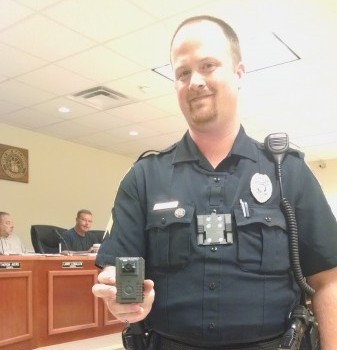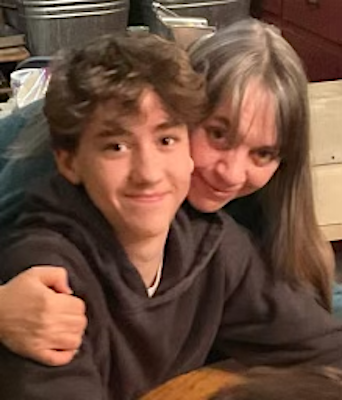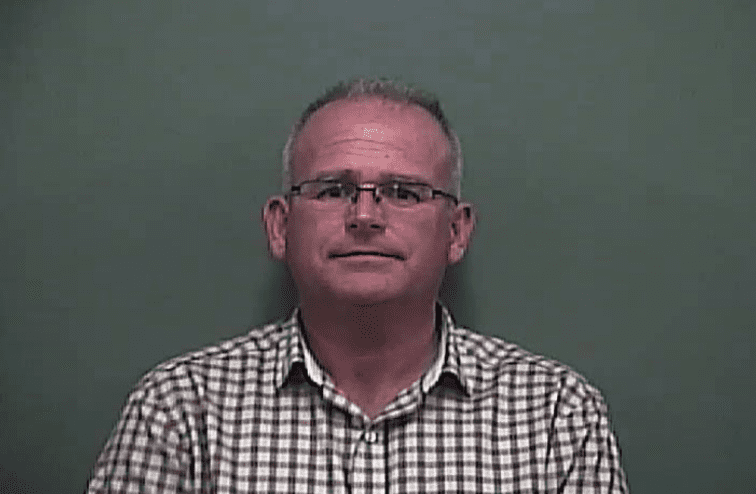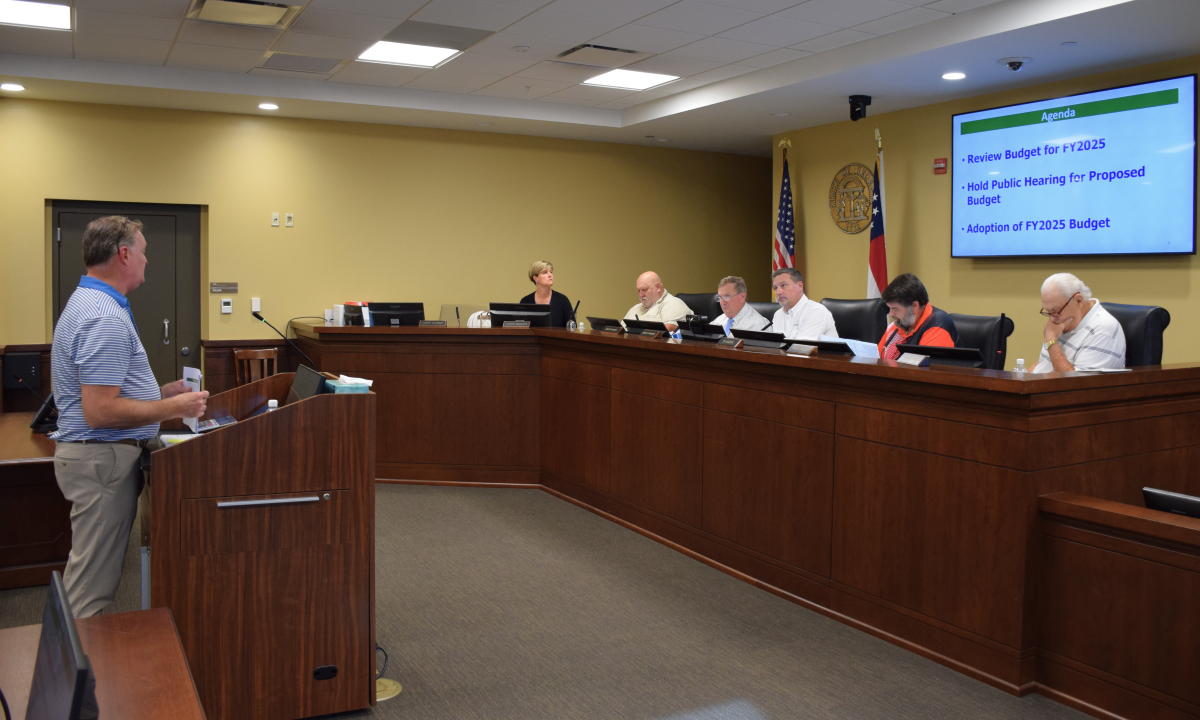
As of July 17th, Baldwin police officers are equipped with body cameras. Believed to be the County’s first public safety department to be equipped with the cameras, the cameras were shown to the Baldwin City Council at Monday night’s regular county meeting by Sergeant Shane Adams. The seven cameras are Watchguard Vista HD cameras and were purchased for $6,349 from the Baldwin P.D.’s “seized asset” fund. The purchase was approved by the Council at the June 6th Council meeting.
Body cameras and the police have been in the news quite a bit recently. Some footage has been used to exonerate officers and other footage has been used against officers. Baldwin Police Chief, Chad Nichols points to the recent accusations of wrongdoing against police officers nationwide in explaining the need for the cameras and the need for more transparency in day-to-day police operations. “It’s for collecting evidence,” Nichols says, “but also for liability protection for the officers.”
It could also protect the city should any local officers be accused of impropriety during a traffic stop or other interaction. “Baldwin’s Police Department, many years past, got a bad reputation,” Mayor Jerry Neace admits.
That “bad reputation” includes repeated allegations from ticketed drivers that the town, specifically the portions of 365 and 441 patrolled by Baldwin PD, was a speed trap. Those claims were investigated by the Georgia State Patrol in 2001. The state found the allegations to be false, clearing the city of any wrongdoing, but you will still find warnings about Baldwin’s ticketing practices on various “speedtrap” websites.
In addition to the debunked complaints, there were a couple of high-profile resignations from the department back in 2013. Both were directly related to allegations against an officer stemming from a traffic stop.
Mayor Neace says the department underwent a complete overhaul 18 months ago and is working hard to put those bad times behind them. He believes the new technology will further improve relations between Baldwin neighbors and the Police. “It will protect our officers and will also allow us (city leaders) to gauge how they interact with the public,” Neace adds. “They (officers) are our diplomats because they have more contact with the public than just about any other city worker.”







